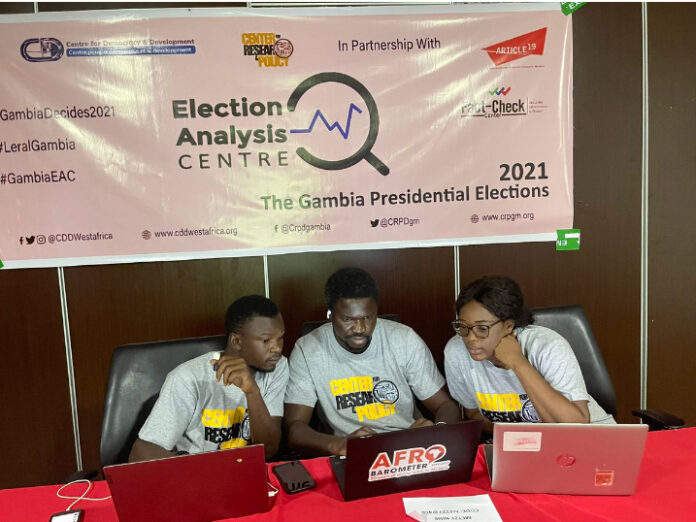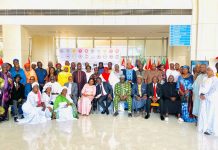By Ndey Sowe
Election Analysis Center (EAC) has issued a preliminary statement indicating that disinformation was a major challenge during the recently concluded presidential election, as well as access to credible information, particularly online information.
On Saturday, December 3, 2021, the Center for Research and Policy Development (CPRD), the Center for Democracy and Development (CDD-West Africa) in partnership with ARTICLE-19 and the Fact-Check Centre, opened the Election Analysis Center to observe the online landscape during the Gambian presidential elections.
“This is a historic election for a number of reasons. First, the EAC indicated that this was the first presidential election to be conducted since the 2016 elections that marked the end of 22-years of dictatorship, and that the free and open access to the internet marked a key change from the restricted access to the internet during the last elections,” they stated, adding that further findings indicated an impressive voter turnout and that fact checkers observed an unprecedented and enthusiastic voter participation, especially first-time voters.
The Election Analysis CRDP, CDD and ARTICLE-19 all indicated that the EAC creates an opportunity to establish a dedicated hub to counter fake news and disinformation, which was the first of its kind to establish not just a database of sources, but also the live countering and fact-checking of election related disinformation.
Based at a local hotel, the Center officially opened on December 3 and closed on December 5. For the presidential election of December 4, 2021, CDD in collaboration with CRPD, ARTICLE 19 and Fact Check Center developed a strategy allowing it to adequately observe information on the election and assess both the levels of disinformation and their effects; stressing that the methodology adopted was based on their continued work in the field of countering fake news and disinformation, and that made it possible for them to actively monitor sources of information on online platforms that are false, and correcting those false narratives and shortcomings before, during and after the elections. They also added that the EAC focused on the collection and analysis of information on the conduct of the elections in real-time, in order to assess the credibility and veracity of the information on social media; optimize a fact-checking system on election day, and verification of any information observed on election day by providing facts.
CDD is hopeful that the partnership with CRPD, Article 19 and the Fact Check Center can shine the light on the strength of collaboration and the need to come together to address the potential dark spots that will be exploited by fake news and disingenuous actors; that in doing so, it will brighten the prospects for a free, open and transparent digital ecosystem in the Gambia.



















